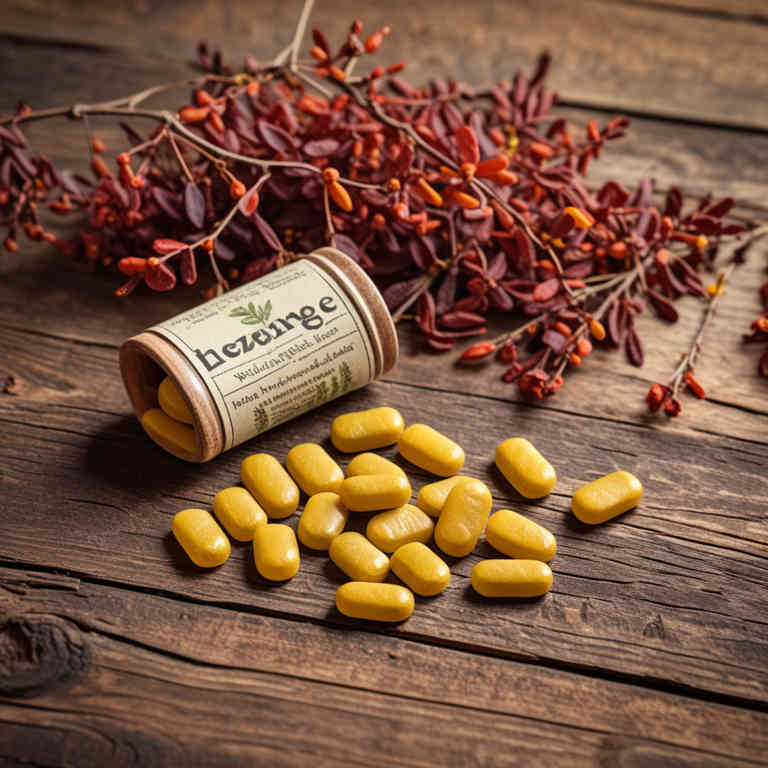Berberis vulgaris lozenge for medicinal use

Berberis vulgaris lozenge is a herbal preparation made from the dried roots of the Barberry plant, which contains the active compound berberine.
It is commonly used in herbalism to treat infections of the mouth and throat, such as sore throat and tonsillitis, due to its antimicrobial properties. The lozenge form allows for localized application, providing relief by reducing inflammation and killing bacteria. It is also sometimes used for digestive issues and skin conditions in traditional medicine.
This preparation is valued for its natural antiseptic and anti-inflammatory effects.
Uses
Berberis vulgaris lozenge has been used to treat infections of the mouth and throat for centuries, particularly in traditional medicine systems such as Ayurveda and Chinese medicine.
Historically, it was valued for its antimicrobial and anti-inflammatory properties, which helped alleviate sore throats, gum disease, and other oral infections. In modern times, the lozenge is still used for similar purposes, often as a natural alternative to conventional throat lozenges. Its active compound, berberine, is known for its broad-spectrum antimicrobial effects.
Today, it is also being studied for its potential in managing conditions like diabetes and cardiovascular disease, expanding its traditional applications into modern therapeutic contexts.
Benefits
Berberis vulgaris lozenge has health benefits such as supporting oral health, reducing inflammation, and boosting the immune system.
This herbal preparation contains berberine, a compound known for its antimicrobial and anti-inflammatory properties. It may help in treating conditions like sore throat and gum disease due to its ability to combat harmful bacteria. Additionally, it can aid in digestive health by promoting the growth of beneficial gut bacteria.
Regular use of Berberis vulgaris lozenge may contribute to overall wellness and natural healing processes in the body.
Constituents
Berberis vulgaris lozenge active constituents include berberine, berberine alkaloid, and other bioactive compounds such as protoberberine derivatives.
These compounds are known for their antimicrobial, anti-inflammatory, and antioxidant properties. Berberine, in particular, has been studied for its potential to support digestive health and immune function. The lozenge form allows for targeted delivery to the throat, making it useful for soothing soreness and reducing infection risk.
Overall, these constituents contribute to the preparation's effectiveness in promoting oral and systemic health.
Preparation
To make Berberis vulgaris lozenge, start by gathering fresh or dried Berberis vulgaris (barberry) leaves and stems.
Wash and chop the plant material, then simmer it in water for about 30 minutes to extract the active compounds. Strain the liquid and combine it with a binding agent like honey or glycerin to create a thick syrup. Pour the syrup into molds and allow it to cool and harden, resulting in a herbal lozenge.
These lozenges are traditionally used for their antimicrobial and anti-inflammatory properties to soothe sore throats and respiratory infections.
Side Effects
Berberis vulgaris lozenge may lead to gastrointestinal discomfort, including nausea, vomiting, and diarrhea, due to its potent alkaloid content.
It can also cause liver toxicity in some individuals, particularly with long-term or high-dose use. The preparation may interact with certain medications, such as those affecting the kidneys or liver, increasing the risk of adverse effects. Additionally, it may cause allergic reactions in people sensitive to berberine or other compounds in the plant.
It is important to consult a healthcare provider before use, especially for individuals with pre-existing medical conditions.